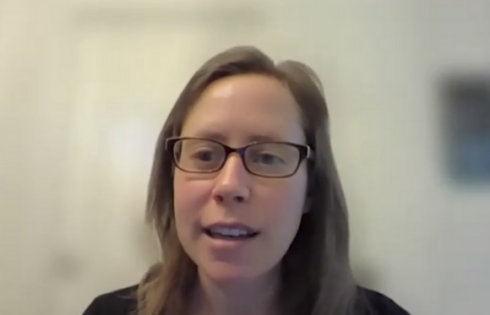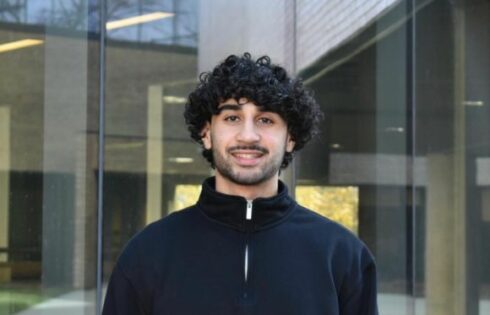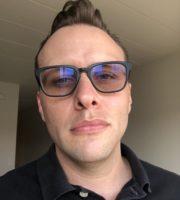
English professor ‘stopped assigning course material which generate debate on race,’ according to the complaint
Six California community college professors are suing to block the state system’s new diversity, equity, inclusion and accessibility rules governing faculty performance evaluations.
“The rules regulate what professors teach in the classroom,” plaintiffs’ counsel Daniel Ortner told The College Fix. “They are intended to alter curriculum and to introduce DEIA and anti-racism principles into what is taught.”
“California Community Colleges’ new [DEIA] rules force professors to endorse the government’s view on politically charged questions regarding diversity, equity, inclusion, and accessibility,” the complaint alleged.
The six professors, including Madera College Chemistry Professor Linda De Morales and Reedley College Chemistry Professor Bill Blanken (pictured), claimed the DEIA rules violate the First Amendment by prohibiting or compelling speech.
The school system’s rules also violate the Fourteenth Amendment by employing vague language in communicating the rules.
The Foundation for Individual Rights and Expression filed the lawsuit for the six plaintiffs, who teach at community colleges in the State Center Community College District.
The district “imposes the DEIA rules on faculty through its contract with the faculty union,” according to the complaint.
“The regulations explicitly require professors to pledge allegiance to contested ideological viewpoints,” according to a FIRE news release. “Faculty performance and tenure will be evaluated based on professors’ commitment to and promotion of the government’s viewpoints.”
The DEI “Competencies and Criteria” issued by the Chancellor’s Office recommended developing and implementing “student programs and activities that incorporate a race-conscious and intersectional lens.”
The chancellor’s “Model Principles” include “culturally responsive classroom practices” and encourage faculty to “take care not to ‘weaponize’ academic freedom and integrity as tools to impede equity in an academic discipline.”
Faculty are encouraged not to “inflict curricular trauma on our students, especially historically marginalized students.”
A California Community Colleges chancellor representative did not respond to The College Fix’s request for comment on this case. The representative instead shared a motion in a “very similar” lawsuit in support of the DEIA rules.
That motion argues the diversity, equity, inclusion and accessibility rules are lawful because they “do not restrict . . . speech, but rather express the Board [of Governor]’s own principles regarding” such topics.
FIRE lawyer Ortner, who spoke to The College Fix via telephone to address this argument, called it “nonsensical” and claimed every California community college district must incorporate the DEIA rules into faculty evaluations. In a later email, Ortner said of the rules, “this is not a regulation of conduct, but pure speech.”
Lawsuit: DEIA rules prohibit and compel speech
Four of the plaintiffs “teach in the humanities or social sciences where DEIA topics frequently come up,” according to the complaint.
These plaintiffs seek to present “students course materials spanning diverse viewpoints” but fear offering viewpoints contrary to diversity, equity and inclusion orthodoxy might constitute “weaponiz[ing] academic freedom” or “inflict[ing] curricular trauma.”
Plaintiff Loren Palsgaard, an English professor, “stopped assigning course material which generate debate on race and DEIA questions” for fear of violating the rules, according to the complaint.
“Palsgaard used to assign students Martin Luther King Jr.’s ‘Letter from a Birmingham Jail’ but stopped because King’s letter includes a racial slur and . . . offer[s] perspectives that are different from the ‘anti-racism’ and ‘intersectionality’ perspective mandated by the DEIA Rules.”
Two plaintiffs “teach chemistry and believe forced endorsement of DEIA principles has no room in their classroom or laboratory. They refuse to incorporate DEIA principles because doing so will detract from their students’ education.”
Plaintiffs Blanken and de Morales, both chemistry professors, said incorporating diversity, equity, inclusion and accessibility principles in their chemistry curricula would be “pedagogically unsound” and “disruptive.” However, they fear discipline for refusing to incorporate them.
Lawsuit: DEIA rules are unacceptably vague
Many terms in the diversity, equity, inclusion and accessibility guide lack “plain meaning” and are “inherently vague,” according to the complaint. They may be interpreted differently by different people.
A glossary defines the terms but in a “frequently confusing, circular, or unclear” way, the complaint alleged.
“For instance, the Glossary defines ‘equity minded’ as ‘being (1) race conscious, (2) institutionally focused, (3) evidence based, (4) systematically aware, and (5) action oriented.’”
MORE: ASU whistleblower exposes DEI requirement in faculty evaluations
IMAGE: Limelight Photography





Please join the conversation about our stories on Facebook, Twitter, Instagram, Reddit, MeWe, Rumble, Gab, Minds and Gettr.